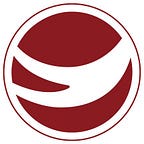Exploring Territories of Difference
Mariana Forero is a senior and member of GlobeMed at University of Virginia, where she is majoring in Global Development Studies. She is interested in pursuing a career that will be a part of the fight for a more equitable tomorrow.
I joined GlobeMed during my first year of college and have been an active member ever since. I was a general body member during my first year, then went on my first Grassroots Onsite Work (GROW) internship to Cambodia the following summer, and became the Partnerships Chair after that. I held the position of Co-President during my junior year, and then interned at GlobeMed Headquarters (HQ) that summer. Clearly, GlobeMed has been a major part of my college life!
Through my time in GlobeMed, I’ve learned practical skills such as fundraising, organizing and marketing events, and building a community of like-minded people. Through GlobeMed events, I’ve met so many people who I otherwise would never have engaged with. By having constructive discussions and envisioning a better tomorrow, I learned that we can form a group of passionate individuals who encourage each other to work together to make a difference. GlobeMed has done this for hundreds of passionate students across the US. It has given me a group of people who I can turn to when what’s happening in the world angers me.
In Territories of Difference, Arturo Escobar writes, “Difference is what defines being.” As a first-generation American raised by parents who immigrated to the US from Colombia, I believe in the importance of understanding people and practices from different backgrounds. It cultivates empathy for others similar to you and those different from you. Escobar’s quote reminds us that not one person in this world is exactly like another. By celebrating those differences, we can create a world that fosters its extensive diversity to build stronger communities. Diversity is beneficial within any sector, because it creates a workforce that looks a lot more like the world — a world that is filled with differences.
GlobeMed at University of Virginia’s partner organization is the Build Your Future Today Center (BFT) in Siem Reap, Cambodia, the home of Angkor Wat — a wonder of the world where millions of tourists flock annually. BFT is a non-governmental organization comprised of a group of amazing Cambodians who connect people to the health, education, and social support resources they would otherwise lack. They also hold English and computer classes at schools to supplement students’ regular courses. BFT works within dozens of rural villages and implements five-year plans in each village. Our GlobeMed chapter raises funds for two different village projects, both of which aim to increase access to health and education services.
The Global Health Fellows Program (GHFP)-II GROW Grant gave me the means to go intern in Cambodia and see what sustainable development on the ground really looks like. I can honestly say that without the GHFP-II GROW grant, I would not have been able to go on this life-changing trip. Many students are shut out from global health before they even start their careers, because of the expenses of flying to another country and forgoing other income sources while doing an internship. The partnership between GHFP-II and GlobeMed has created an outlet of optimism and inclusion for students who have been traditionally underrepresented in global health, giving them the opportunity to new learn skills and learn from our GROW partners. These experiences will be invaluable in their careers.
During GROW, our team tried to help the staff at BFT in any way that we could, but we learned from them just as much as we hope they learned from us. We learned about a culture that we had never interacted with. We met and talked to people we never would have had the chance to talk to otherwise. We learned about the inner workings of a public health NGO and experienced what a grassroots NGO worker’s everyday life is like. But most importantly, we learned how partnerships between those from so-called “developed” countries and “developing” countries should look like.
Overall, GlobeMed has given me a new definition for the right to health: the right to all basic resources needed to ensure happiness. Strong sustainable partnerships and thoughtful mutual learning are key to achieving that vision. Learning about the structures that surround us and allow for me to live comfortably while others are fighting just to survive has made me grateful for all that I have, but also angry at those who are widening the gap between those with the most and those with the least. Sometimes after classes, I tend to feel paralyzed about the myriad of ways that history repeats itself in order to favor those on top. But luckily for me, GlobeMed has been my outlet for that anger. It has helped me connect with a community of students who are also not okay with how certain things work in the world today. I see that within my chapter during globalhealthU discussions and when participating in network-wide GlobeMed events. By seeing that I’m not alone in moments of desperation about the current state of the world, I feel like there is a chance that things will change. Students today have so much power. And with more students like us learning from each other, learning from our partners, and going into careers that could help change the world. I feel a bit more optimistic about how the world might look like in the future.
Right now, I’m in my last semester of college at the University of Virginia. After graduating in May 2018, I hope to pursue a Masters in Communication Design in Argentina. I plan to help organizations hone their mission into a well-communicated strategy both on and offline. Sharing stories is an important part of the fight against social inequity. Ideally, I’d love to work in a global health rights organization.
Originally published at https://www.globemed.org on April 12, 2018.
